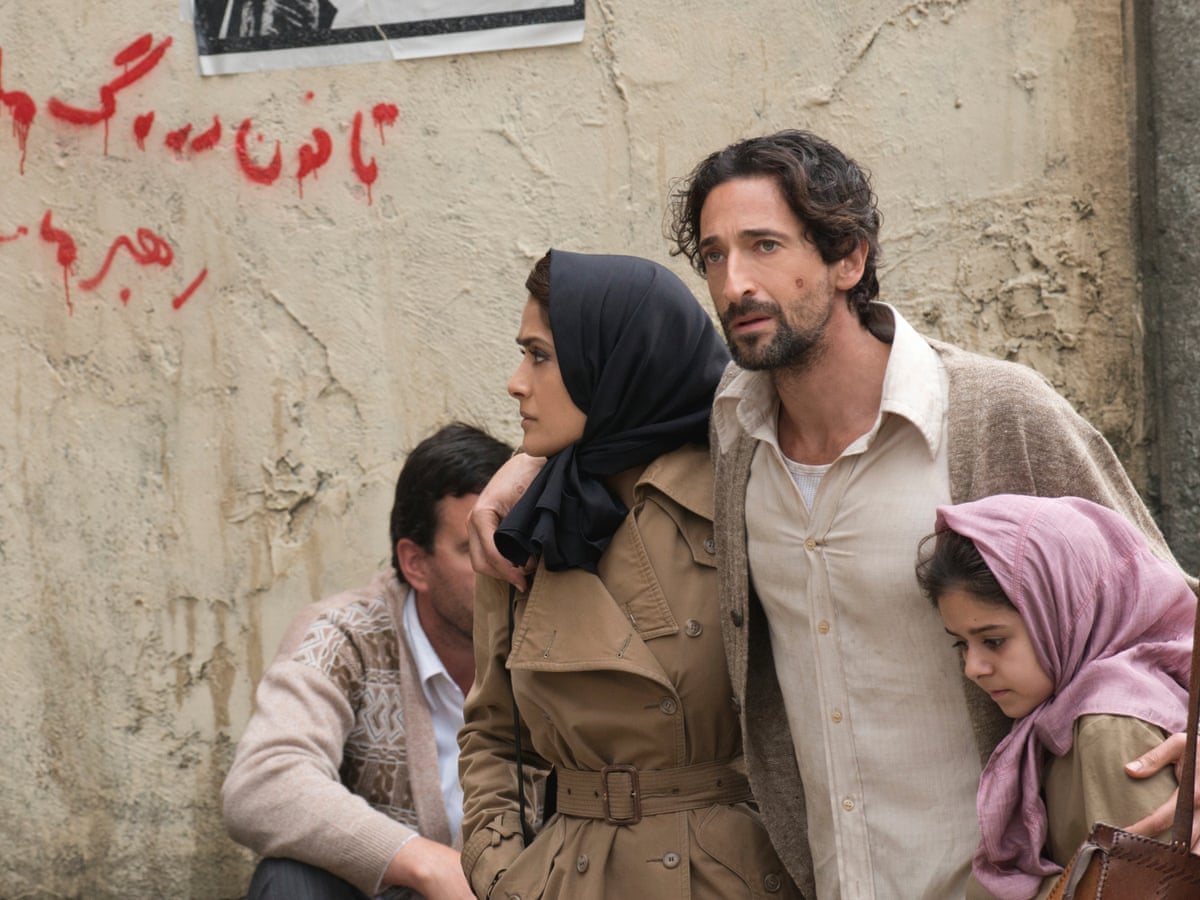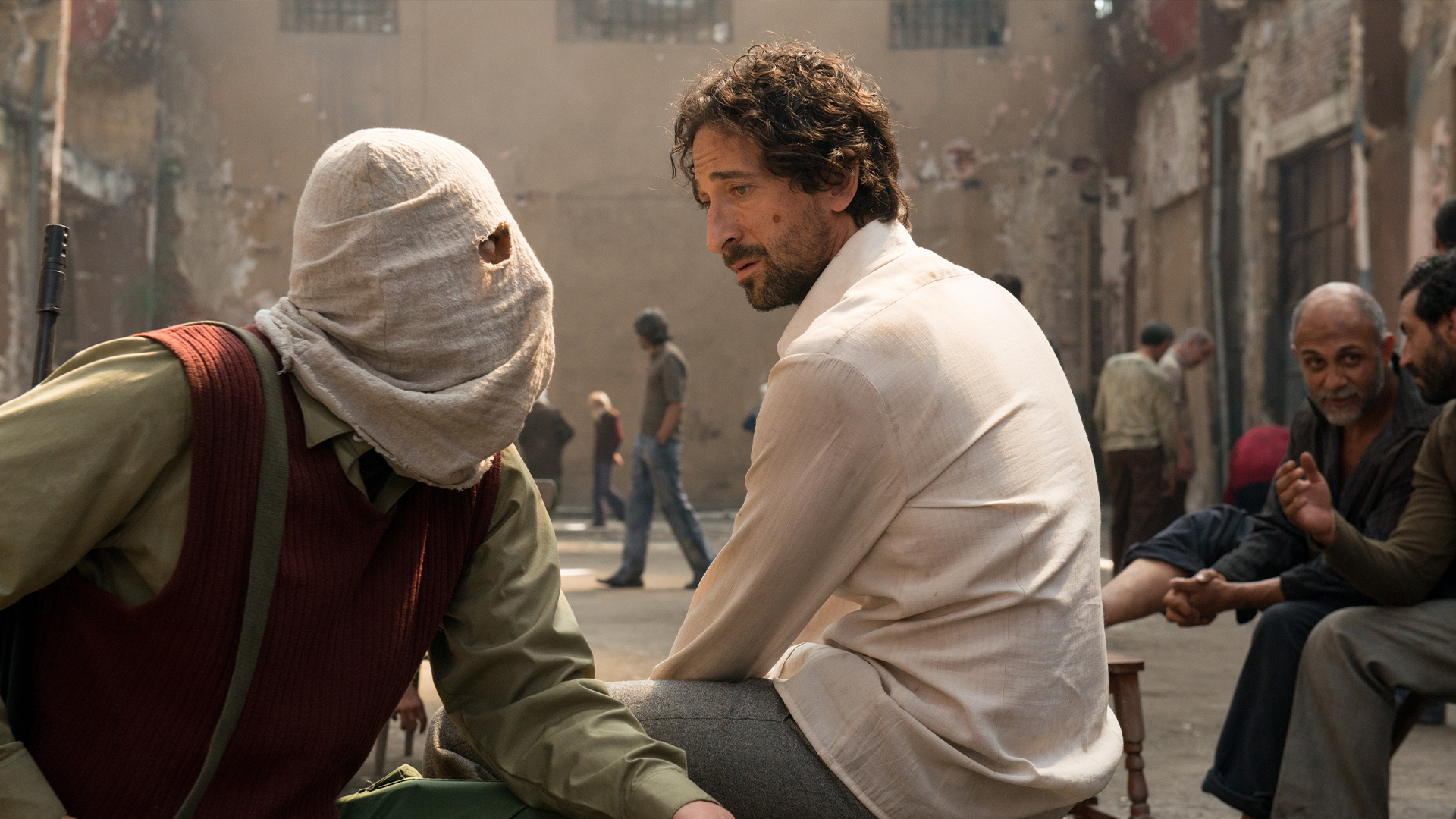Septembers of Shiraz – A Somber Portrait of Fear, Identity, and Exile in Revolutionary Iran
Septembers of Shiraz is a historical drama released in 2015, directed by Wayne Blair and based on the best-selling novel by Dalia Sofer. The film stars Adrien Brody and Salma Hayek as a wealthy Jewish couple whose lives are shattered during the aftermath of the 1979 Iranian Revolution. Through a deeply personal and emotionally charged story, the film explores themes of identity, injustice, political persecution, and the devastating impact of regime change on ordinary people.
The film follows Isaac Amin (Adrien Brody), a successful gem dealer living in Tehran, whose life of comfort and privilege abruptly ends when he is arrested by the new Islamic regime. Accused of being a spy for Israel and the West — largely due to his wealth and religion — Isaac is imprisoned, beaten, and interrogated without formal charges. What begins as an ideological crackdown soon reveals itself to be a complex web of personal vendettas, political opportunism, and moral ambiguity.
Salma Hayek portrays his wife, Farnaz, who is left to protect their son and attempt to secure Isaac’s release while navigating a society that has turned hostile overnight. As their home is raided, friends disappear, and fear creeps into every corner of daily life, Farnaz’s resilience and quiet strength emerge as a powerful counterpoint to Isaac’s physical and psychological torment.

What makes Septembers of Shiraz compelling is its portrayal of a specific moment in Iranian history through the lens of a family caught in the crossfire. The Iranian Revolution promised justice and equality but, for many minorities and professionals, it quickly devolved into chaos, retribution, and fear. The Amin family's story represents the fate of thousands who were suddenly labeled enemies of the state — not because of their actions, but because of their class, faith, or political neutrality.
Adrien Brody delivers a restrained but emotionally raw performance. Isaac begins as a proud, somewhat naive man who believes his wealth and moral integrity will shield him. However, through his brutal imprisonment, he is stripped of everything — dignity, trust, and identity. Salma Hayek also gives one of her more subdued and thoughtful performances, portraying Farnaz not as a helpless spouse, but as someone whose intelligence and resolve slowly come to the forefront.
Visually, the film is rich in atmosphere. The opulent interiors of pre-revolutionary life contrast starkly with the cold, stark prison cells and shadowed city streets. The cinematography captures a Tehran in transition — vibrant yet unstable, beautiful yet dangerous. The pacing is deliberate, emphasizing the emotional weight of each moment rather than the physical spectacle.

While Septembers of Shiraz received mixed critical reviews, with some arguing it simplifies the complexities of the revolution, it succeeds in humanizing a historical moment often seen in ideological terms. The film doesn’t offer easy answers or paint anyone entirely in black and white. Even Isaac’s interrogator, a former victim of the Shah’s regime, is shown as a man consumed by his own pain and disillusionment.
In essence, Septembers of Shiraz is not just a political drama — it's a story about the fragility of home, the sudden collapse of normalcy, and the quiet courage required to survive when the world turns upside down. It is a haunting reminder of how quickly freedom can vanish, and how personal strength becomes the last line of defense.



